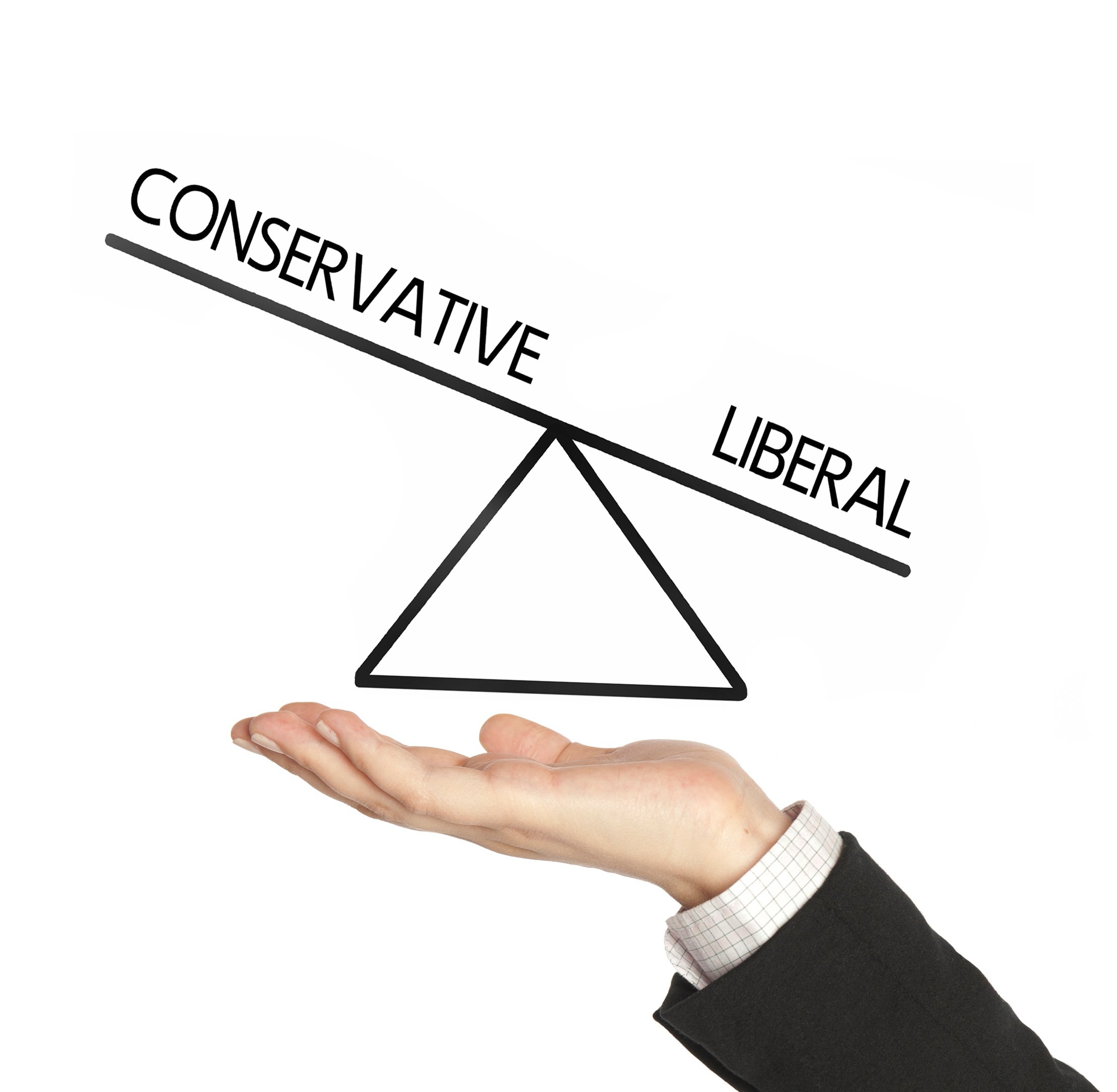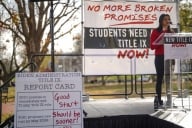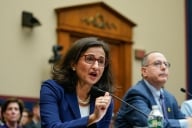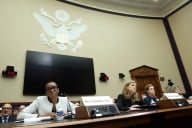You have /5 articles left.
Sign up for a free account or log in.

iStock
When Betsy DeVos on Thursday accused liberal faculty members of trying to force their views on students, the new education secretary infuriated many professors -- and won praise from some conservatives. Most faculty members who weighed in on social media denied the indoctrination and unfairness charges. While not disputing her assertion that they are more likely than others to be liberal, they said it was unfair to say that this meant they were indoctrinating anyone. Many conservatives who applauded DeVos said their personal experiences (or those of their children, nieces, nephews, etc.) showed she was correct.
For all the back-and-forth of traded anecdotes, there is research on these subjects -- in peer-reviewed articles, books published by scholarly presses and so forth. And most of these studies reach a consensus.
Yes, professors lean left (although with some caveats). But much of the research says conservative students and faculty members are not only surviving but thriving in academe -- free of indoctrination if not the periodic frustrations. Further, the research casts doubt on the idea that the ideological tilt of faculty members is because of discrimination. Notably, some of this research has been produced by conservative scholars.
DeVos is not the only one to raise the issue recently. A state senator in Iowa has introduced a bill to require that no professor or instructor be hired by a public university if his or her most recent party affiliation would “cause the percentage of the faculty belonging to one political party to exceed by 10 percent” the percentage of the faculty belonging to the other dominant party. The bill, like the DeVos speech, has angered many professors.
Are Professors More Liberal Than the Public at Large?
The most complete study of the politics of professors is 10 years old. The study is unusual among such research efforts in that it included community college faculty members (who are left out of many such analyses) and looked at age and positions on social issues. The study's age may be a disadvantage, but it also followed a presidential election (George W. Bush's successful re-election bid vs. John Kerry) in which the incumbent was ridiculed by many campus activists. The study was called "The Social and Political Views of American Professors" and it was based on a survey of 1,417 full-time faculty members.
Among the key findings:
- Faculty members were more likely to categorize themselves as moderate (46.1 percent) than liberal (44.1 percent). Conservatives trailed at 9.2 percent.
- Faculty members, when examined by sector, differed widely. At community colleges, 19 percent of faculty members called themselves conservatives, and only 37.1 percent said they were liberals. Liberal arts college faculty members were most likely to identify as liberal (61 percent, compared to only 3.9 percent as conservatives).
- When it came to voting, professors (even in the humanities) were not a monolith, with 15 percent in the humanities saying they had voted for President Bush in his re-election bid. Bush won just under a third of the vote in business and just over a third in computer science and engineering. And Bush won a narrow majority of votes from faculty members in the health sciences.
- The professors approaching their emeritus years were significantly to the left of those coming into academe. Among those aged 50-64, 17.2 percent identified themselves as left activists, while only 1.3 percent of those aged 26-35 did so.
- On social issues, professors had strong views in support of gay rights and abortion rights, and most believed Bush misled the nation about Iraq. But professors were split on affirmative action.
Some criticized the study for not viewing any imbalances in political attitudes as troubling, while others defended the study and said it challenged the notion that everyone in academe was liberal and voted for Democrats (or Ralph Nader). The study was conducted by Neil Gross, then at Harvard University and now at Colby College, and Solon Simmons, of George Mason University.
What Have Other Studies Found?
 Research since the 2007 study largely confirms the idea that faculty members at four-year colleges and universities (the focus of these studies) lean left. But here, too, studies find differences when looking at different groups. A 2016 study published in Econ Journal Watch considered voter registration of faculty members in selected social science disciplines (and history) at 40 leading American universities. The study found a ration of 11.5 Democrats for every Republican in these departments, but with wide variation. In economics, the ratio was 4.5 to one, while in history the ratio was 33.5 to one.
Research since the 2007 study largely confirms the idea that faculty members at four-year colleges and universities (the focus of these studies) lean left. But here, too, studies find differences when looking at different groups. A 2016 study published in Econ Journal Watch considered voter registration of faculty members in selected social science disciplines (and history) at 40 leading American universities. The study found a ration of 11.5 Democrats for every Republican in these departments, but with wide variation. In economics, the ratio was 4.5 to one, while in history the ratio was 33.5 to one.
Another 2016 analysis of faculty members at four-year colleges and universities found that political leanings of faculty members are lopsided, but far more lopsided in New England. The analysis, based on 2014 data, found that nationally, colleges and universities had a six to one ratio of liberal to conservative professors. In New England, the figure was 28 to one. The study was by Samuel J. Abrams, a professor of politics at Sarah Lawrence College and a research fellow at the Hoover Institution at Stanford University.
Abrams, a self-described conservative, said he views that New England ratio as problematic. At the same time, he said he believes faculty members encourage students to consider many views, and that his career -- tenure at Sarah Lawrence, not known for its many conservatives -- suggests that right-leaning academics are hired and succeed in academe.
Other studies focus on educational attainment. These studies tend to find liberalism more likely embraced among those with at least some graduate education -- a group that includes professors but also many others.
A 2016 study by the Pew Research Center found that among those with graduate education of some form, 31 percent hold consistently liberal positions based on an analysis of their opinions about the role and performance of government, social issues, the environment and other topics. Another 23 percent hold mostly liberal positions. Only 10 percent hold consistently conservative positions, and 17 percent hold mostly conservative positions. Since 1994, the share of those with graduate education holding consistently liberal positions has increased substantially, the study found.
Does the Academy Shut Out Conservatives?
So if academe is lopsidedly liberal, does this demonstrate that search committees must be discriminating against candidates they perceive as conservative?
There are some anecdotes that suggest cases of discrimination. In her book Inside Graduate Admissions: Merit, Diversity and Faculty Gatekeeping (Harvard University Press), Julie R. Posselt, assistant professor of education at the University of Southern California, was able to watch elite graduate program deliberations on admissions. In one case she describes in the book, an applicant to a top linguistics Ph.D. program was a student at a small religious college unknown to some committee members but whose values were questioned by others.
“Right-wing religious fundamentalists,” one committee member said of the college, while another said, to much laughter, that the college was “supported by the Koch brothers.” The committee then spent more time discussing details of the applicant's GRE scores and background -- high GRE scores, homeschooled -- than it did with some other candidates. The chair of the committee said, “I would like to beat that college out of her,” and, to laughter from committee members, asked, “You don't think she's a nutcase?”
At the end of this discussion, the committee moved the applicant ahead to the next round but rejected her there.
Posselt did not write that this was typical of the reviews she saw, but graduate admissions tend to be decentralized and hard to monitor.
One national experiment, by Gross of Colby College; Ethan Fosse, a graduate student at Harvard University; and Joseph Ma, an undergraduate at the University of British Columbia, employed a "secret shopper" approach to look for political bias -- and didn't find it.
Posing as undergraduates getting ready to apply to doctoral programs, they sent email messages to graduate program directors in top sociology, political science, economics, history and English departments. The inquiries were similar in describing their academic preparation, their undergraduate institutions and their interest in applying. Some of the emails made no mention of politics, but some mentioned having previously worked on either the Obama or McCain presidential campaigns.
The researchers then had independent (and politically mixed) observers rate the responses from the graduate directors on frequency, timing of replies, information provided, emotional warmth and enthusiasm. In a few cases, the researchers found "traces" of a political impact, but "no statistically or substantively significant evidence of bias."
These findings have generally been used to suggest that professors' political lopsidedness reflects self-selection (much like the way those in finance may be more conservative than the public at large).
Gross and Fosse, and Catherine Cheng, a graduate student at the time, contributed to a 2010 book, Diversity in American Higher Education: Toward a More Comprehensive Approach (Routledge), that built on the theory of self-selection. Their research suggested that academics tend to form their views on politics early in life and tend to have certain characteristics (aside from being academics) that are associated with political liberalism. They argued that 43 percent of the political gap can be explained because professors are more likely than others:
- To have high levels of educational attainment.
- To experience a disparity between their levels of educational attainment and income.
- To be either Jewish, nonreligious or a member of a faith that is not theologically conservative Protestant.
- To have a high tolerance for controversial ideas.
Yet more evidence for the self-selection theory comes from a 2007 study, "Left Pipeline: Why Conservatives Don't Get Doctorates," by the husband-and-wife social science team of Matthew Woessner of Pennsylvania State University at Harrisburg and April Kelly-Woessner of Elizabethtown College.
Woessner and Kelly-Woessner based their findings on analysis they did from national surveys of freshmen and seniors conducted by the Higher Education Research Institute at the University of California, Los Angeles. They found that in both choices of majors and in personal values, conservatives seem to be taking themselves off the track for academic careers well before graduate school. The authors did not find evidence of statistically significant differences in grades or measures of academic performance, so most of the report is based on the premise that interests and experiences are at play, not aptitude.
For starters, the paper finds that conservatives are much more likely to pick majors in professional fields -- areas that tend to put students on the fast track for an M.B.A. (or for a job) more than a Ph.D. Only 9 percent of students on the far left and 18 percent of liberals major in professional fields, compared to 33 percent of conservatives and 37 percent of those who identify as being on the far right.
Further, the study finds that not only (as has been reported many times previously) do students who identify as liberal outnumber those who identify as conservative, but that those who are liberal are much more likely to consider a Ph.D. The UCLA survey of seniors found that only 13 percent of all students were considering a Ph.D. But the numbers were significantly higher for those on the left (24 percent of the far left and 18 percent of liberals) than on the right (11 percent of the far right and 9 percent of conservatives).
Does Political Imbalance Make Life Difficult for Conservative Students?
DeVos and others suggest that the liberal dominance must make life difficult for students who have other political views of the world. Again, the evidence suggests a much more nuanced reality, and one in which many conservative students thrive.
 A 2012 book widely cited for covering these topics is Becoming Right: How Campuses Shape Young Conservatives (Princeton University Press), by Amy J. Binder, professor of sociology at the University of California, San Diego, and Kate Wood, then a doctoral candidate in the UCSD sociology department. The book is based on extensive interviews with self-identified conservative students and other research conducted at two institutions (which the authors don't identify, but describe as liberal).
A 2012 book widely cited for covering these topics is Becoming Right: How Campuses Shape Young Conservatives (Princeton University Press), by Amy J. Binder, professor of sociology at the University of California, San Diego, and Kate Wood, then a doctoral candidate in the UCSD sociology department. The book is based on extensive interviews with self-identified conservative students and other research conducted at two institutions (which the authors don't identify, but describe as liberal).
Some students at both institutions had complaints. Conservative female students, for example, said they felt judged by peers who were shocked at their desire for a family and not just a career. And some students said they felt marginalized.
But the students said that attending the colleges they did was a positive experience and helped shape their -- conservative -- political identities. The students said they wouldn't want to change institutions. "There was this sense that being in an environment they perceived to be overwhelmingly liberal did challenge them, but in ways that were positive and beneficial for them,” Wood said in a 2012 interview. “It made them clarify values and ideas about different issues or about what being a conservative means.”
Woessner of Penn State, who describes himself as a conservative, has also written about how other studies he and his wife have done show that students are aware that their professors have various views, but that students don't change to conform. Writing that "students aren't sponges," Woessner explains, "Whereas some disciplines, such as political science, often shun partisan advocacy, many fields, including sociology, ethnic studies and social work, openly advocate a distinct ideological worldview. If these and similar studies are correct, it suggests that student beliefs are surprisingly resilient. For every one student who is actively recruited to a leftist political cause, a vast majority complete their education with their values largely intact."
And what of students who do complain of political bias? A study published last year, in the journal Teaching in Higher Education, surveyed undergraduates at two unnamed institutions -- one in the United States and one in Australia (where allegations of professorial political bias are also much discussed). The study asked undergraduates a series of questions about their perceptions of bias, and also of other qualities. The study found that students with certain characteristics -- a sense of entitlement and an orientation to focus on grades -- are much more likely than other students to perceive their instructors as being biased.
The study was by Darren L. Linvill, assistant professor of communication studies at Clemson University, and Will Grant, a lecturer in the Center for the Public Awareness of Science at the Australian National University.
Can Professors on the Right Succeed?
A recent book based on interviews with conservative professors and a national survey both suggest that faculty members who are Republicans are succeeding and finding happiness in academic careers.
The book, Passing on the Right: Conservative Professors in the Progressive University (Oxford University Press), was written by Jon A. Shields, an associate professor of government at Claremont McKenna College, and Joshua M. Dunn Sr., an associate professor of political science and director of the Center for the Study of Government and the Individual at the University of Colorado at Colorado Springs. The authors interviewed 153 conservative professors in the humanities and social sciences on 84 campuses.
Some complained of discrimination based on politics, but not of careers being ended. One productive sociologist was voted down for tenure by his colleagues and dean, only to have the vote reversed by a provost -- due in part to some liberal colleagues who cried foul at the process. Conservative scholars also complained that some journals seemed to reject views that were inconsistent with liberal thinking.
But the book's bottom line is that conservative professors are succeeding and happy in academe -- and that there is not a wall of liberal academics blocking their way.
A study published by the Social Science Research Network and written by Abrams, the Sarah Lawrence/Hoover institution scholar, suggests that conservative scholars are happy in academe. The study included this question to a national sample of faculty members: “If you were to begin your career again, would you still want to be a college professor?”
The results showed that most professors answered in the affirmative. But while 56 percent of liberal professors did so, 66 percent of conservative professors did so. The result, Abrams wrote, suggests that conservative professors are aware they are in the political minority on campus, and are also content in their careers.








